
Dar es Salaam – Effective management of infodemics help reduce its impact on the global as well as national efforts that are tailored to prevent and respond to public health emergencies. The overflow of information that surges across the digital and physical environments during a disease outbreak causes confusion and risk-taking behaviors that normally intensity or lengthen outbreaks, particularly when people are unsure about what they need to do to protect themselves.
A recent socio-ecological survey conducted in Simiyu region, Meatu District on the drivers of Cholera transmission in April 2024 has revealed that some members of the affected communities still believe that Cholera is engineered by witch doctors while others believe that using aqua-tabs result in male impotence and infertility for women. These rumors spread more rapidly and consequently jeopardize the government and partner efforts promoting recommended hygiene and sanitation measures.
“We never used latrines/toilets for years and nothing bad happened to us. Someone must be the source of this”, said Tinde Genda from Mwanhuzi ward, in Meatu district.
These beliefs have amplified harmful messages around the affected communities which has consequently fueled hesitancy towards Cholera recommended preventive measures.
To enhance the capacities of public health officers responding to Cholera outbreaks and those working to enhance preparedness efforts to effectively manage infodemics and reduce its impact on health behaviors during response to Cholera outbreaks and other health emergencies, WHO and AIRA have conducted a three-day virtual training on integrated analysis and creation of an infodemics insights report to inform key strategies to address the misinformation and rumors.
The national infodemics focal person at the Ministry of Health, Mr James Mhilu, has commended WHO efforts to organize such an advanced training on the integrated analysis and the creation of an infodemics insights reports that has carried key skills for the continuous monitoring, real-time infodemic insights and strategy refinement.
“This training has come at the right time where some of our people from some regions are struggling to prevent and respond to Cholera outbreaks and the ongoing rumors and misinformation which distinctly contributes to its rapid spread. We are grateful to the WHO to organize this training and we hope that our RCCE focal persons in the regions will immediately apply the knowledge and skills they received during this session to refine and adapt their strategies towards promotion of Cholera preventive measures in their respective locations”.
A total of 37 (18 females and 19 males) RCCE focal persons from national and regional levels including RCCE partners such as WHO, THPS, WVT, and UNICEF received this training using the Digital Learning Platform (DLP) established by the WHO at the Ministry of Health offices in Dodoma region and other online platforms through the online link.
The Regional Health Promotion Coordinator/RCCE focal person from Mara region, Sophia Kiwanga recounted “The advanced training, we have received on how to triangulate and analyze the social listening data with other sources with the goal to provide an infodemic insights report will help us prioritize evidence-informed strategies that will not only address the information voids during the response, but also promote adoption of the positive behaviors that will keep our people safe from the disease outbreaks”.
The Infodemics training has deepened more on social listening and integrated analysis to understand questions, concerns, information voids, narrative and misinformation of populations on a regular basis using data from different data sets to deliver high quality health information and programming.
This was a more practical session that practically demonstrated how an infodemic insights report is generated following the six steps which include choosing the question that the infodemic management insights could help answer, identify and select data sources and develop analytical plan for each data source, conduct integrated analysis across data sources, develop strategies an recommendations, develop an infodemic insights report as well as disseminate the infodemic insights report and track actions taken.
According to Dr Neema Kileo, Healthier Population cluster lead at WHO, “to sustain these gains, WHO and other partners will continue leveraging the existing systems and structures to infodemics management to build resilience to misinformation as well as engaging and empowering communities to take positive action to protect their health and the health of people around them”.


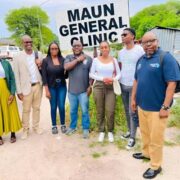
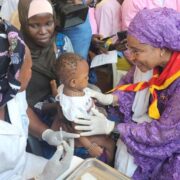
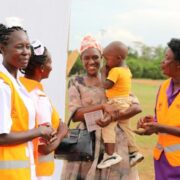

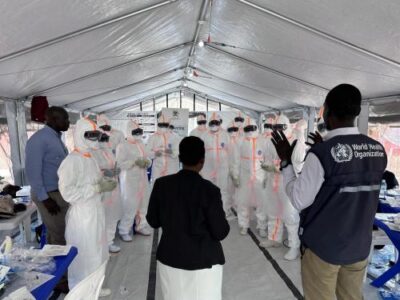
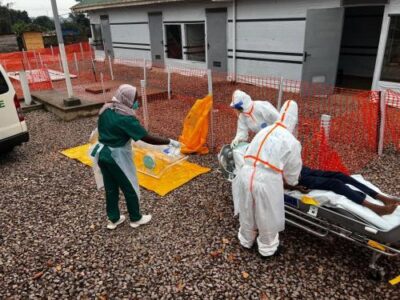
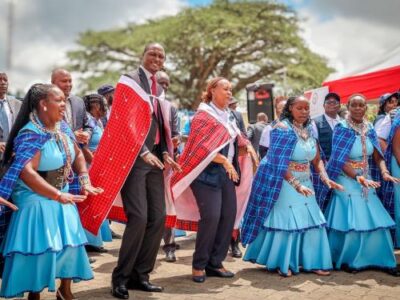
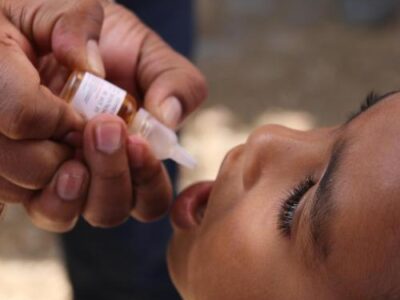

Comments